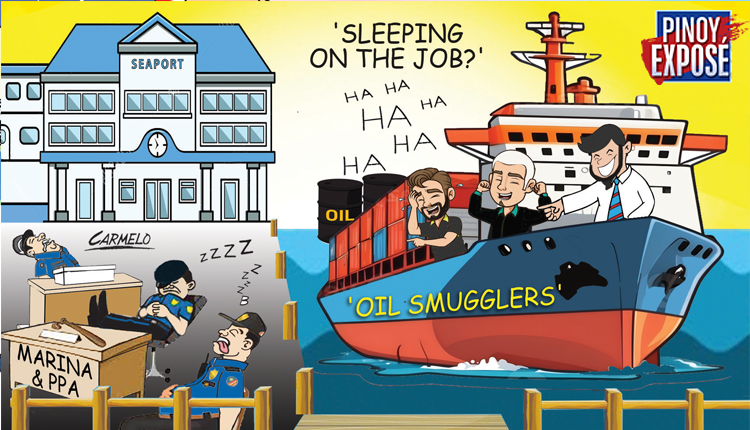OIL smuggling is among the decades-old problem the country has been facing. A study cited by the Asiand Development Bank (ADB) in 2016 estimated that the Philippines was losing as much as $750 million (about P43 billion) a year due to oil smuggling.
But if Finance Secretary Ralph Recto feels assured by the diligent implementation of the Bureau of Customs (BOC) of the ‘Fuel Marking Program’ (FMP) that was started in earnest in 2019 and which, thus far, has turned in P1 trillion in revenue, he is wrong.
He may want to look closely at the successful operations against oil smugglers being launched by the BOC’s Intelligence Group to realize that, damn it, Jose, oil smuggling is a well-financed, well organized criminal syndicate that covers the entire country, especially thriving in his own province of Batangas.
Indeed, the result of the BOC-IG’s operations that led to the seizures of not only huge volumes of smuggled fuel, mostly diesel, but also tanker vessels and truck lorries, can only lead to the conclusion that engaging in oil smuggling entails huge “investment” in terms of capitalization.
And like drug lords, oil smugglers are willing to take the risks inherent in their “business” because of huge profit, as the ADB report indicated.
But unlike illegal drugs, the “shadow vessels “ and truck lorries of oil smuggling syndicates are easy to spot, for everyone to see. Indeed, they are “hiding in plain sight” and only unnoticeable because the agencies we entrusted to assist the BOC have turned their gaze away from their operations.
Given the above, it would be ridiculous to just blame the BOC for the continued proliferation of oil smuggling, citing its reputation as a “graft-ridden agency.” Such hasty “blame-passing” is either based on ignorance or an attempt at deflection.
If our authorities would open their eyes wider– and their thinking– they would realize that combatting oil smuggling is not only about enforcement but also, about compliance to regulations that is already beyond the BOC’s jurisdiction.
Matter of factly, the BOC’s effective enforcement of customs laws is negated by the loose implementation of our maritime laws and regulations by, among others, the Martime Industry Authority (MARINA), in charge of vessel registration, the Philippine Ports Authority (PPA), in charge of port operations and the Philippine Coast Guard (PCG), in charge of monitoring our sea lanes and sea traffic.
As well, the repeated apprehensions by the BOC of oil smugglers should make Secretary Recto and President Marcos wonder as to what the heck are these agencies doing in the government’s effort to stop oil smuggling?
In Batangas for example, the recent apprehensions by the BOC of docked tanker vessels are on ports under PPA jurisdiction. And how can these vessels sail all over our archipelago, enter our territory and discharge their cargo, sometimes in the middle of the sea, without MARINA registration and PCG monitoring? Blame it on “radar failure?”
If only these agencies are not remiss in their own jobs for reasons we can only suspect, it is fair to suppose that oil smuggling would have been stamped out a long time ago.




Comments are closed.